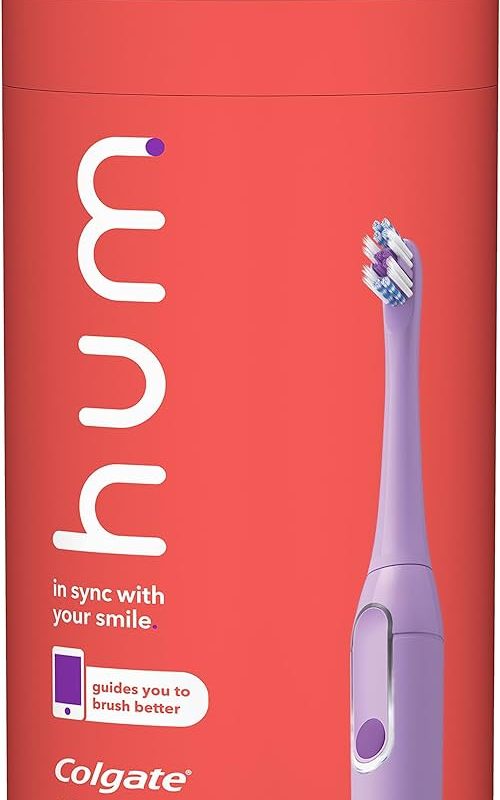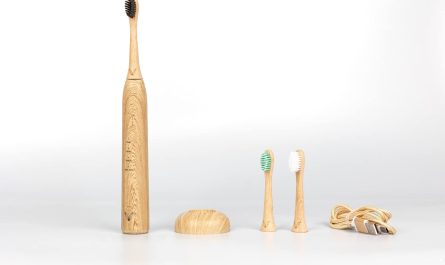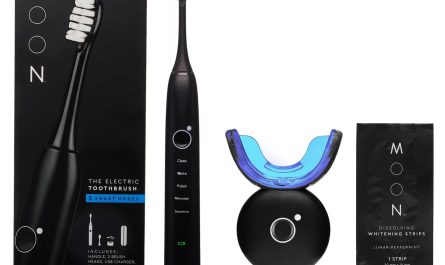Introduction:
Using an electric toothbrush is a popular choice for maintaining oral hygiene due to its efficiency and effectiveness. However, some individuals may experience a rough or gritty sensation on their teeth after using an electric toothbrush. This can be concerning and may lead to questions about the cause and how to address it. In this guide, we will explore some potential reasons why your teeth may feel rough after using an electric toothbrush and provide recommendations for managing this issue.
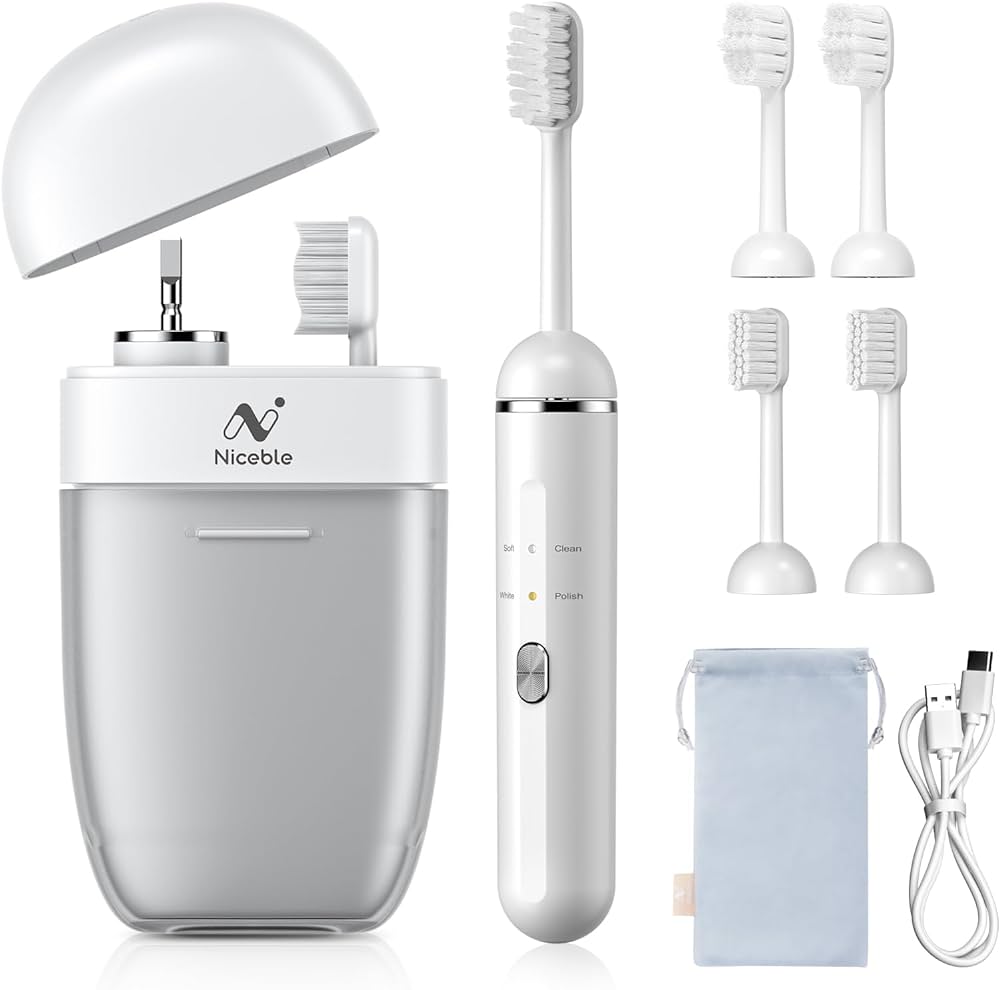
Why do my teeth feel rough after electric toothbrush?
Removal of Plaque and Stains:
One possible reason for the rough sensation on your teeth after using an electric toothbrush is the thorough removal of plaque and surface stains. Electric toothbrushes are designed to be highly effective at removing plaque, which is a sticky film of bacteria that can accumulate on the teeth. Additionally, they can be efficient at removing surface stains caused by factors like food, beverages, or tobacco use. As a result of this effective cleaning action, the smooth surface of the teeth may be more noticeable, leading to a temporary rough sensation.
Sensitivity to Vibrations or Brushing Technique:
The sensation of roughness may also be attributed to the vibrations and movements of the electric toothbrush, as well as the technique used during brushing. If excessive pressure or aggressive brushing is applied, it can cause temporary irritation or sensitivity in the gums and tooth enamel. This can contribute to a rough feeling on the teeth after brushing.
Removal of Dental Calculus:
Dental calculus, also known as tartar, is a hardened form of plaque that cannot be removed by regular brushing. However, electric toothbrushes can effectively remove soft plaque, which may make the hardened calculus more noticeable. When the calculus is removed, it can leave behind a rough surface on the teeth until it is professionally cleaned by a dental professional.
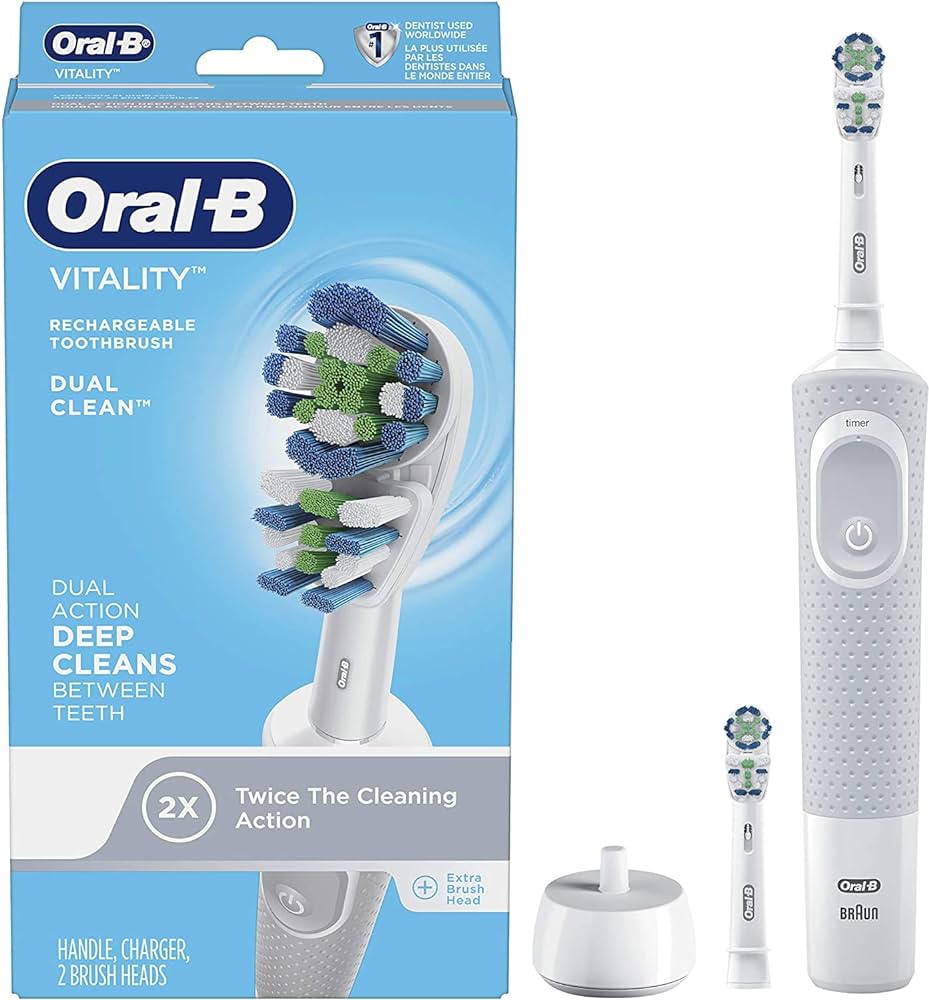
Enamel Erosion:
If you have underlying enamel erosion, the use of an electric toothbrush may accentuate the rough feeling on your teeth. Enamel erosion occurs when the protective outer layer of the teeth gradually wears away, exposing the underlying dentin. Dentin is inherently softer and can feel rougher compared to the smooth surface of enamel. It is important to address enamel erosion, as it can lead to increased tooth sensitivity and susceptibility to cavities.
Toothbrush Head Type or Bristle Hardness:
The type of toothbrush head and the hardness of the bristles can also contribute to the rough sensation on your teeth. Some individuals may find that certain toothbrush heads or bristle types feel rougher on their teeth than others. Experimenting with different toothbrush heads and opting for softer bristles may help alleviate the rough feeling.
Dry Brushing:
Brushing your teeth without the proper amount of toothpaste or saliva can cause increased friction between the toothbrush and teeth, leading to a rough sensation. Dry brushing can also contribute to gum irritation and enamel wear. It is important to wet the toothbrush and use an appropriate amount of toothpaste to ensure proper lubrication during brushing.
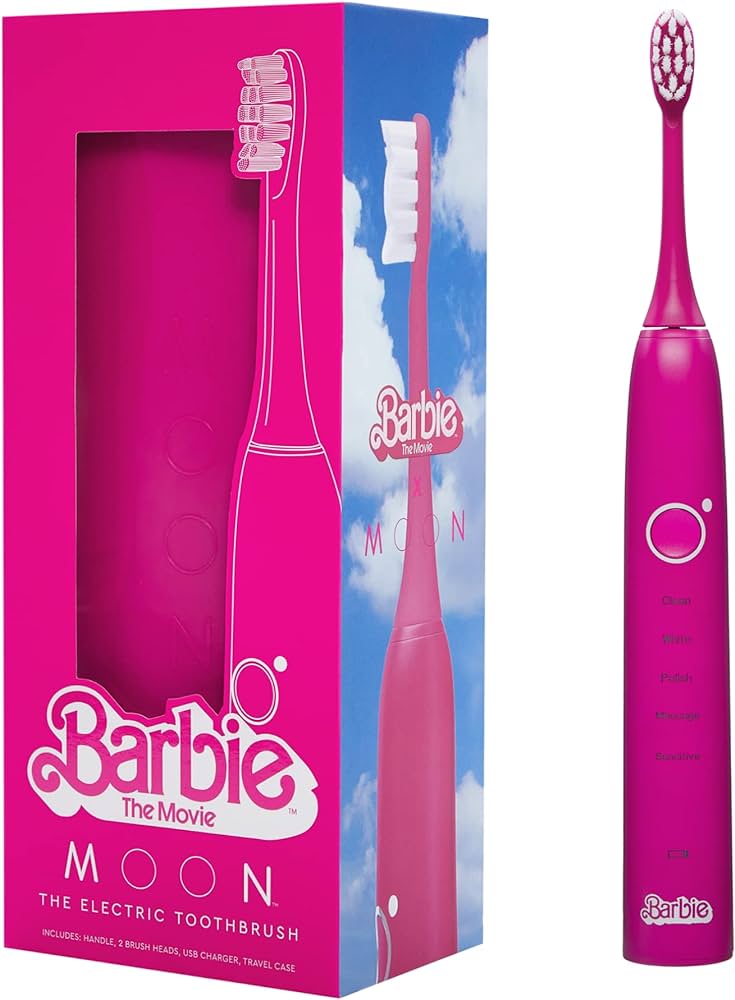
Managing the Rough Feeling:
If you experience a rough feeling on your teeth after using an electric toothbrush, consider the following recommendations:
a) Evaluate your technique:
Ensure that you are using the correct brushing technique, including gentle pressure and small circular or back-and-forth motions. Avoid applying excessive force or brushing too aggressively, as this can contribute to gum irritation and enamel wear.
b) Use a soft-bristled brush head:
If you are using a toothbrush head with harder bristles, switch to a soft-bristled option. Soft bristles are gentler on the teeth and gums, reducing the risk of roughness or irritation.
c) Consult your dentist:
If you are experiencing persistent roughness or sensitivity, it is recommended to consult your dentist. They can assess your oral health, identify any underlying issues such as enamel erosion or dental calculus, and provide appropriate guidance or treatment.
d) Consider desensitizing toothpaste:
If tooth sensitivity accompanies the rough feeling, using a desensitizing toothpaste may help alleviate the discomfort. These toothpastes contain ingredients that help reduce sensitivity and protect exposed dentin.
e) Maintain regular dental cleanings:
Dental cleanings performed by a dental professional are crucial for removing dental calculus and maintaining optimal oral health. Regular cleanings can help eliminate any roughness caused by calculus buildup.
f) Address enamel erosion:
If you suspect enamel erosion, it is important to address it promptly. Your dentist can provide recommendations to protect and strengthen your enamel, such as using fluoride treatments or recommending lifestyle changes to minimize acid erosion.
g) Practice good oral hygiene habits:
Along with using an electric toothbrush, maintain a comprehensive oral hygiene routine that includes regular flossing, tongue cleaning, and using mouthwash. These practices help remove plaque, bacteria, and debris from all areas of the mouth, promoting oral health.
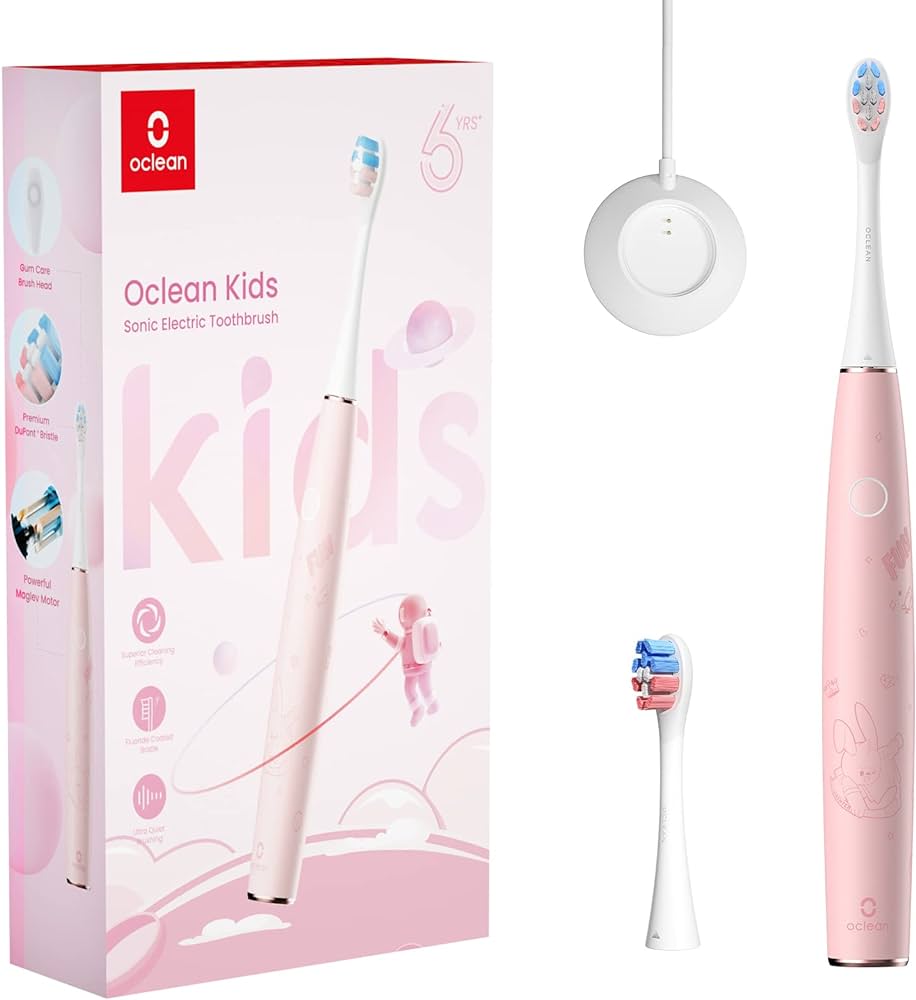
Use a toothpaste for sensitive teeth:
If you experience tooth sensitivity along with the rough feeling, using a toothpaste specifically formulated for sensitive teeth can help alleviate discomfort. These toothpastes contain ingredients that help block nerve sensations and provide relief from sensitivity.
Limit acidic food and drinks:
Acidic foods and beverages can contribute to enamel erosion and tooth sensitivity. Reduce your consumption of acidic items such as citrus fruits, carbonated drinks, and acidic sauces to minimize the risk of roughness and enamel wear.
Address dry mouth:
Dry mouth can lead to decreased saliva production, which is important for maintaining oral health. If you have dry mouth, consider using over-the-counter saliva substitutes or consult your dentist for appropriate management strategies. Adequate saliva helps lubricate the teeth during brushing, reducing the rough sensation.
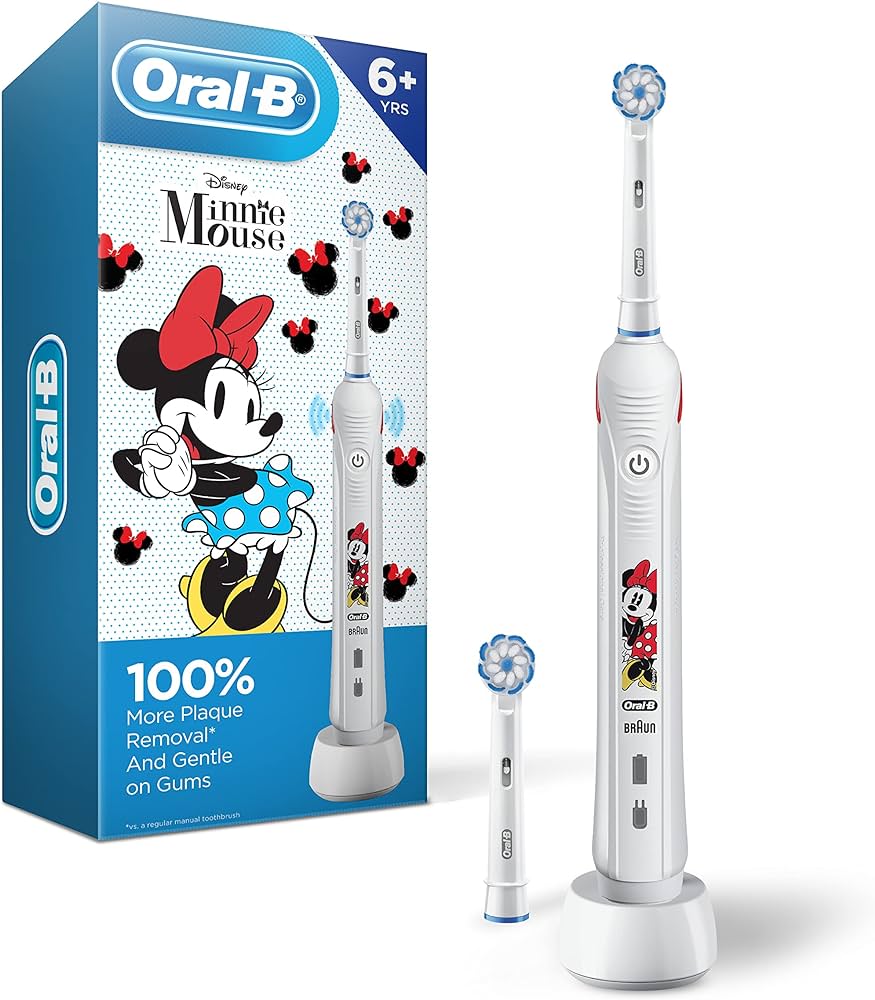
Conclusion:
The rough feeling on your teeth after using an electric toothbrush can have various causes, including the thorough removal of plaque and surface stains, sensitivity to vibrations or brushing technique, the presence of dental calculus, enamel erosion, or the type of toothbrush head or bristle hardness. It is important to evaluate your brushing technique, use a soft-bristled brush head, and ensure proper lubrication during brushing to minimize the rough sensation. Regular dental cleanings, addressing enamel erosion, and maintaining a comprehensive oral hygiene routine are also crucial for optimal oral health. If the rough feeling persists or is accompanied by tooth sensitivity, consult your dentist for a thorough evaluation and personalized recommendations. By addressing the underlying causes and maintaining good oral hygiene practices, you can enjoy the benefits of an electric toothbrush without the discomfort of a rough feeling on your teeth.

